SPECIAL REPORTS AND PROJECTS
WWF apologises for human rights abuse allegations and commits to an indigenous-led approach to global conservation
Published
5 years agoon
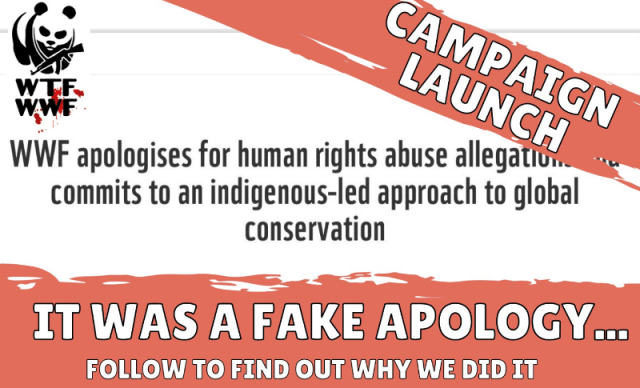
Gland, 26 May 2021 – IN LIGHT OF EVIDENCE OF SERIOUS HUMAN RIGHTS ABUSES, WWF commits to reparations for victims and to a long-term strategy which, for the first time, prioritizes indigenous people’s land rights and promotes community-led conservation across WWF-supported areas.
In January 2021, the WWF International Board began an internal revision of the remedial action taken by the organisation following the findings and recommendations of the Embedding Human Rights in Nature Conservation: From Intent to Action report. This process, supported by all 35 boards of WWF’s constituent members, has determined that WWF’s initial response to the Independent Panel’s investigation on alleged human rights abuses in and around WWF-supported areas failed to adequately compensate victims or deal with the shortcomings within WWF as well as partner organisations, that enabled these abuses. The widespread harm caused to local communities by WWF-supported conservation efforts suggests an ambitious project of reform is necessary to ensure WWF is able to protect Indigenous Peoples and Local Communities (IPLCs) rights everywhere we work.
“We need to radically transform the way we envision and approach conservation, moving away from “easy-fix” climate and environmental solutions that continue to harm indigenous people and frontline communities. This redesigning process must prioritize community-led conservation, placing IPLCs at the centre of conservation and land management initiatives. Indigenous people are the most effective environmental custodians which should make securing their rights over their customary lands our number one priority. It is not simply a matter of human rights and international law, but about supporting the best solution we have against this climate and ecological crisis” said Marco Lambertini, Director General, WWF International.
Conservation works best when local communities are put at the heart of it. Working to secure the community tenure of indigenous peoples and local communities will empower those best equipped to look after their local environment and is the best way to conserve all our planet’s natural wonders.
Acknowledging and apologising for The Independent Panel’s findings:
In April 2019 the World Wildlife Fund (WWF) commissioned a panel of global human rights and conservation experts to conduct a systemic review of WWF practices and provide recommendations in regards to alleged human rights abuses in and around protected areas supported by WWF in Cameroon, the Central African Republic, the Democratic Republic of Congo, the Republic of Congo, Nepal and India.
The report’s key findings:
- Allegations across the protected ares in question include multiple instances of murder, rape, torture, unlawful arrest and detention, physical beatings, corruption, complicity in poaching, and destruction and theft of personal property committed by WWF-supported ecoguards against IPLCs.
- WWF had knowledge of alleged human rights abuses in every protected area under review and failed to investigate credible allegations of abuse in half of those protected areas.
- WWF continued to fund, train and equip eco-guards alleged to have committed human rights abuses despite knowledge of those allegations and without taking adequate steps to operationalize safeguarding and human rights protection protocols designed to protect IPLCS.
- Where WWF did conduct investigations into these abuses they came several years after allegations were first made and only following pressure from the media and/or civil society.
- Where WWF was involved in the creation of protected areas, it failed to ensure the effective participation of IPLCs and thus violated their right to free,prior and informed consent.
- The Panel found no agreement in place between WWF and the local authorities responsible for park administration to ensure the upholding of the human rights and FPIC rights of IPLCS.
An official apology
In light of these findings, we unreservedly apologise to the indigenous peoples and local communities (IPLCs) of the areas under review, and to any other individual or community that has been subject to similar abuses in and around other WWF-supported protected areas.
Moreover, we want to take responsibility for the violent evictions of IPLCs carried out by WWF-supported ecoguards and for the impacts that their eviction from their lands has had on these IPLCs, including loss of culture and livelihoods, and increased malnutrition.
We also want to apologise to our supporters, donors, volunteers and readers for not having immediately disclosed allegations of human rights abuses in WWF affiliated parks. We have a responsibility of full transparency to all those who support and believe in our work.
Reparations
To adequately compensate victims of human-rights abuses carried out by WWF supported projects in the seven countries originally investigated in the Panel’s report, WWF have set aside $2 million dollars. The processing of reparations claims will be overseen by indigenous leaders and representatives from the communities affected.
We fear that the inadequate nature of our previous grievance procedures has prevented many other victims of human rights abuses from reporting injustices. Since we cannot at this stage be certain of the scale of abuses WWF programmes are implicated in we are setting aside a further $5 million for future claims.
Transforming our approach
The WFF international board has concluded that the scale and severity of the problems identified by the Panel in the protected areas reviewed demonstrate endemic flaws in WWF’s operational approach. These have resulted in the systematic eviction of indigenous people from their customary lands, their exclusion from leadership positions in local conservation projects and the militarisation of protected areas’ security forces.
Following the Panel’s recommendations and in compliance with our human rights commitments we have already started to take remedial action. The Management Response and initial measures taken can be found here. Below is a list of further measures we are committed to implement across all protected areas WWF supports, in order to turn the page and build a conservation model that safeguards local communities’ human rights and actively supports indigenous people’s claims to their customary lands.
In protected areas where rights abuses have been alleged we will:
- Commission independent indigenous peoples’ committees to review the original investigations.
- Work alongside indigenous leaders to ensure the resolution of allegations by compensating victims and working with local authorities to prosecute the perpetrators.
- Establish externally supervised safeguards to prevent further abuses.
In all WWF- supported protected areas and conservation initiatives we commit to:
- Initiate independent reviews of the effects of protected areas on local communities’ rights.
- Freeze all funding towards protected areas and other conservation initiatives where human rights abuses have been reported until allegations have been resolved, externally supervised safeguard mechanisms established, and all victims adequately compensated.
- Adopt concrete measures to identify and hold accountable all members of the organization that have been responsible for WWF negligence, ineffective response and direct involvement in alleged human rights abuses, including staff members in individual countries, the WWF senior management team and board members.
- Work with local and indigenous communities to co-design accessible and inclusive pathways to submit complaints and report any issues with ongoing conservation initiatives through.
- Carry out new independent free, prior and Informed consent processes with impacted local communities in all current and proposed protected areas; empowering communities to decide how and whether they wish to work with WWF to support their own conservation efforts.
- Use WWF influence to actively support, at local, national and international levels indigenous people’s claims over their customary lands and their efforts to secure legal ownership rights and conservation responsibilities over such territories.
- Withdraw financial and practical support to partners and collaborators who fail to support indigenous people’s rights and claims to customary land.
Commenting on the internal revision, Pavan Sukhdev, President of WWF International, said:
“From the report’s findings it is clear that for decades our negligence, and in some instances direct involvement with episodes of violence and abuse, have caused serious emotional, physical and psychological harm to individuals and entire communities across the world. We need to acknowledge that and take responsibility for our role in these allegations. There is no excuse and a formal apology is not enough. We can and need to do better. We need to ensure that the measures that we commit to take forward go beyond minor changes and embody our first step towards a real transformation of our work and ethos.”
Open Letter to WWF
WWF, you are the most well-known environmental organisations in the world: you have great power and an even greater responsibility. However, time and again your projects have dispossessed and abused Indigenous and local communities. You claim that they endanger the ecosystems they have cared for long before you entered their lands. On the other hand, you collaborate with the very same corporations that actually destroy biodiversity, greenwashing their destructive practices. For the sake of justice and the survival of ecosystems worldwide, stop legitimising violence and human rights abuses in the name of conservation. Instead, become an ally to Indigenous people, local communities, and the Global Majority.
For too long you have been dividing humans from nature by building walls; imposing a colonial model called ‘Fortress conservation’, which places conservation in direct conflict with human rights.
You dictate who is “unauthorised” in the lands you enter. You fund, train and legitimise militarised eco-guards who violently evict local communities from their homes. You act on the dangerous and false colonial ideology that perceives human presence as a threat to the ecosystem, except if they are wealthy, predominantly white tourists. You demonise and prevent indigenous and local people from hunting sustainably to feed themselves, but have encouraged trophy hunting for super-rich tourists. This model, based on separation and colonial values, is a violent lie that supports white supremacy – it is, to put it simply, ecofascism.
Fortress conservation is putting us all in danger, as it is further destroying the connection between land and people. It is destroying the cultures who have taken care of and regenerated that land for hundreds of years. This makes you complicit in the historic colonial violence against local and indigenous communities. Their cultures hold rich and powerful counterstories that teach the interdependence and deep connection between humans, the earth and all beings, which so many of us need to rediscover.
This failure of WWF concerns us all because it directly affects both the people and the planet. A recent report by an independent panel of experts shows a shocking history of murder, rape, torture, and violence committed by the eco-guards that WWF funds, equips and manages. This report goes even further in revealing that you have had knowledge of this, yet you continue to fund them. This is simply appalling.
From the Republic of Congo to Nepal, and India to Cameroon, these are not a few ‘bad apples’ but inherent aspects of the oppressive colonial conservation model you employ, and that dominates the conservation sector. Communities are losing their lands, their homes and ways of life, threatening them with starvation, disease and the loss of their human dignity. Dividing communities from their land and livelihoods will always be violent.
Many of the people on your boards are financing, working or lobbying for some of the most environmentally destructive companies on Earth. How can the same people who are destroying the global ecosystem lead and fund its preservation? It’s absurd that we need to say this, but the people leading you should not be those profiting from ecocide.
You invest your supporters’ donations into heavily polluting industries, such as fossil fuels and agribusiness, and partner with them. You receive donations from logging and palm oil companies and let them cut through the same forests you claim to protect.
To put it bluntly, WWF has a profound conflict of interest, and is working with, rather than against, those destroying life on Earth. Rather than challenging those industries, you greenwash them, allowing them to expand their destruction. It is pitiful for an environmental organisation to simply ask companies to slow down their destruction of our home: you must join the global environmental movement in demanding they stop immediately!
WWF, you have betrayed the Global Family. In frontline communities your betrayal means violence. To your supporters your betrayal means broken promises and complicity.
Your organisation has sold us the image of being the ‘good guys’ in an evil world of environmental destruction. From an early age, your iconic panda has playfully filled our cultural consciousness; clambering into our classrooms; filling our shelves with fluffy tokenistic toys, and our minds with idealised imagery of the “pristine wilderness” that serves your marketing strategy.
We entrusted you with the fight for the planet, raising tens of millions of pounds from our pockets as public donors in the UK alone. Yet rather than using this power to support the mobilisation of social and ecological movements of solidarity, you use the power of marketing; you sell us the ridiculous story that simply purchasing, petitioning and running marathons will “save the planet”! You reduce activism to mass consumption – the rotten core of the environmental crisis – making your supporters’ actions hollow and meaningless. You take the struggle for survival of life on earth and make it into a brand. You then use our money, our agency and our validation to make us complicit in outrageous acts of violence and human rights abuses against our brothers and sisters around the world. Through you, we too become tools of fortress conservation and capitalism’s violence.
However, we in the Minority World/Global North are not the real victims of your betrayal. Your failure to serve those with the capacity of preserving the ecosystems you claim to protect is your betrayal to humanity. Those communities are the heart of the resistance to ecocide.
The same people you are persecuting have been caring for the land, their home, for hundreds of years, and are essential to its flourishing. There is increasingly clear evidence on the key role of indigenous communities in already safeguarding 80% of the world’s remaining biodiversity, and therefore many conservation bodies call on all organisations to support their land rights. Often Indigenous and community-managed lands have even higher biodiversity and less deforestation than national parks and wildlife reserves. They don’t only slow down degradation, but actually improve the state of the ecosystem. By ignoring these scientific facts you are harming nature – the very thing you claim to be protecting. Why are you oppressing the people who are doing conservation better than you?
WWF, you must advocate for the land and human rights of local and indigenous communities, supporting their cultural, political and ecological work. Even if a community is degrading their ecosystem, any conservation initiative must be led by a dialogue among equals working together. It must support local livelihoods, and enable community-led learning for regeneration that is based on equity and justice. Ultimately, conservation works best when local communities are empowered at the heart of their local environments.
You are already taking steps in this direction in Latin America; so why do you attack communities elsewhere? You must not simply “involve” communities in an imposed neoliberal agenda based on ‘development’ and markets – the very same things that destroy our planet.
You must rethink your role as a supporting one: you are not the protagonist in this story. Right now, in fact, you’re the villain. Effective stories of conservation must be co-written and led by the visions, decisions, knowledge and guidance of indigenous and local communities.
WWF, you know the ecological catastrophe we face: yet its urgency must not be reacted to with your current eco-fascist ‘solutions’. If we do not challenge the crisis appropriately, the suffering and deaths will be devastating. You also know that Indigenous’ and local communities’ land rights and cultures are fundamental to the health of their ecosystems, and to their resistance to the corporations that degrade them. Greenwashing and small technical fixes won’t solve this crisis: we need a transformation of our global consciousness that decolonizes the ways we understand and promote conservation. If you keep attacking Indigenous and local communities, working with polluting industries and the governments who serve them, you will continue to be complicit in the ecological catastrophe and guilty of ecofascism. You will continue to fail to represent or be in solidarity with the global environmental and social justice movement.
The best hope for our survival and flourishing is for conservationists to unite with the Indigenous resistance movement, and fight the environmental destruction of governments and industry. Whose side are you on in this struggle for the survival of life on Earth?
We will not stop challenging the WWF to radically dismantle its colonial approach to conservation, until they join us in enacting the following demands:
1- STOP THE HARM:
Immediately stop dispossessing indigenous and local communities of their land. Cease any collaboration or support to organisations and security forces that evict local communities.
2- GROUND CONSERVATION IN JUSTICE:
Transition all your fortress conservation projects to the support of genuine indigenous-led and community-led conservation. Projects must actively advocate and be based upon: recognising land rights, local knowledge, local livelihoods, and social justice. Use your platform and financial leverage to advocate these changes across the whole conservation sector.
3- BE ACCOUNTABLE:
Be accountable by giving control of project funding to local communities, through their own democratic/collective processes. Be transparent through systems of direct people-to-people communication, such as people’s assemblies, between local communities and your supporters.
4- END TOXIC RELATIONSHIPS:
Stop the conflict of interests with those destroying ecosystems: cut financial links with large corporations; fire board members from polluting industries; use your platform to mobilize people to take action and demand an end to corporate ecocide.
Signed by:
Organisations:
- Survival International
- Centre for the Anthropology of Sustainability, University College London
- Association Okani
- Pan-African Living Cultures Alliance (PALCA)
- Integrated development Initiatives in Ngorongoro (IDINGO)
- Front Commun pour la Protection de l’Environnement et des Espaces Protégés
- Ole Siosiomaga Society Incorporated (OLSSI), SAMOA
- Fondation Internationale pour le Développement l’Education l’Entreprenariat et la Protection de l’Environnement (FIDEPE)
- Pastoral Peace Reconciliation Initiative (PPRI)
- XR Anti-Oppression Circle
- Rogerio Cumbane/MAKOMANE-ADM (Association for Community Development)
- XR Internationalist Solidarity Network (XRISN)
- Skogsupproret (Forest Rebellion)
People:
- Arturo Escobar (Professor of Anthropology)
- Katy Molloy (Flourishing Diversity)
- Fe Haslam (Global Justice Forum – GJF)
- Francis Shomet Olenaingi’sa
- Fiore Longo – Survival International
- Cathryn Townsend
- Fiu Mataese Elisara – Executive Director of OLSSI
- Romao Xavier – Programme and Advocacy Coordinator
- SHAPIOM NONINGO – Technical Secretary GTANW
- Jose Ines Loria Palma – President of the San Crisanto Foundation
- Elena Kreuzberg – Consultant on Environmental Issues
- Maurizio Farhan Ferrari – Senior Policy Adviser on Environmental Governance
- KOAGNE Clovis – Coordinateur Général Fondation Internationale pour le Développement l’Education l’Entreprenariat et la Protection de l’Environnement (FIDEPE)
- Milka Chepkorir
- Samuel Nangiria
- Kofi Mawuli Klu (XRISN)
- Esther Stanford-Xosei
- Jerome Lewis
Original Source: redd-monitor.org
Related posts:
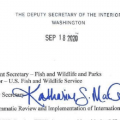
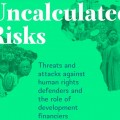 Development financiers fuel human rights abuses – New Report
Development financiers fuel human rights abuses – New Report
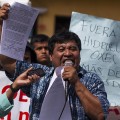 Global Mobilisation to End the Criminalisation of Land Rights Defenders
Global Mobilisation to End the Criminalisation of Land Rights Defenders
 Tech giants should join global campaign to seek land rights for all: experts
Tech giants should join global campaign to seek land rights for all: experts
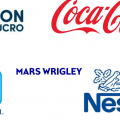 Times for mitr phol, coca cola, nestle, mars wrigley and bonsucro to live up to their human rights responsibilities.
Times for mitr phol, coca cola, nestle, mars wrigley and bonsucro to live up to their human rights responsibilities.
You may like
SPECIAL REPORTS AND PROJECTS
‘Food and fossil fuel production causing $5bn of environmental damage an hour’
Published
2 months agoon
December 22, 2025
UN GEO report says ending this harm key to global transformation required ‘before collapse becomes inevitable’.
Related posts:

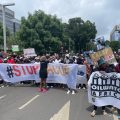 Activists storm TotalEnergies’ office ahead of G20 Summit, demand end to fossil fuel expansion in Africa
Activists storm TotalEnergies’ office ahead of G20 Summit, demand end to fossil fuel expansion in Africa
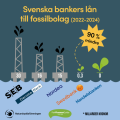 New billion-dollar loans to fossil fuel companies from SEB, Nordea and Danske Bank.
New billion-dollar loans to fossil fuel companies from SEB, Nordea and Danske Bank.
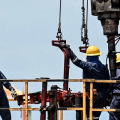 Fossil fuel opponents lobby Africans for support
Fossil fuel opponents lobby Africans for support
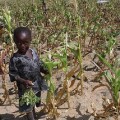 Ecological land grab: food vs fuel vs forests
Ecological land grab: food vs fuel vs forests
SPECIAL REPORTS AND PROJECTS
Britain, Netherlands withdraw $2.2 billion backing for Total-led Mozambique LNG
Published
2 months agoon
December 17, 2025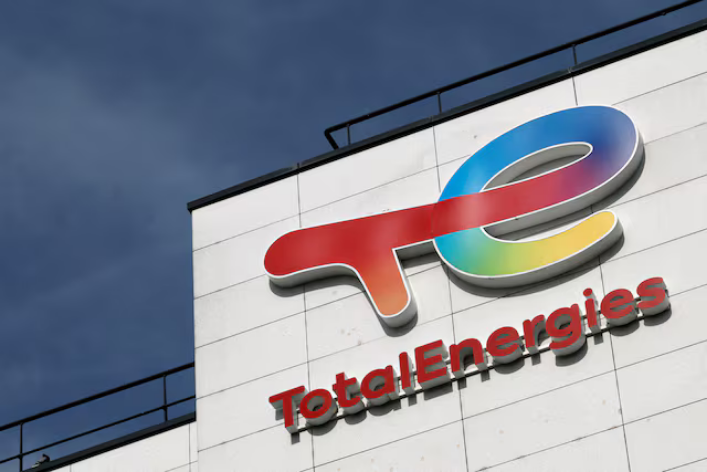
CONSTRUCTION HALTED IN 2021, BUT DUE TO RESTART
PROJECT CAN PROCEED WITHOUT UK, DUTCH FINANCING, TOTAL HAS SAID
CRITICISM FROM ENVIRONMENTAL, HUMAN RIGHTS GROUPS
Related posts:

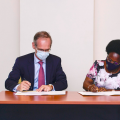 Uganda, Total sign crude oil pipeline deal
Uganda, Total sign crude oil pipeline deal
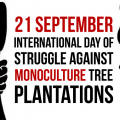 Witness Radio – Uganda, Community members from Mozambique and other organizations around the world say NO to more industrial tree plantations
Witness Radio – Uganda, Community members from Mozambique and other organizations around the world say NO to more industrial tree plantations
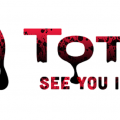 NGOs file suit against Total over Uganda oil project
NGOs file suit against Total over Uganda oil project
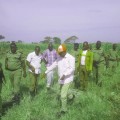 Agribusiness Company with financial support from UK, US and Netherlands is dispossessing thousands.
Agribusiness Company with financial support from UK, US and Netherlands is dispossessing thousands.
SPECIAL REPORTS AND PROJECTS
The secretive cabal of US polluters that is rewriting the EU’s human rights and climate law
Published
3 months agoon
December 5, 2025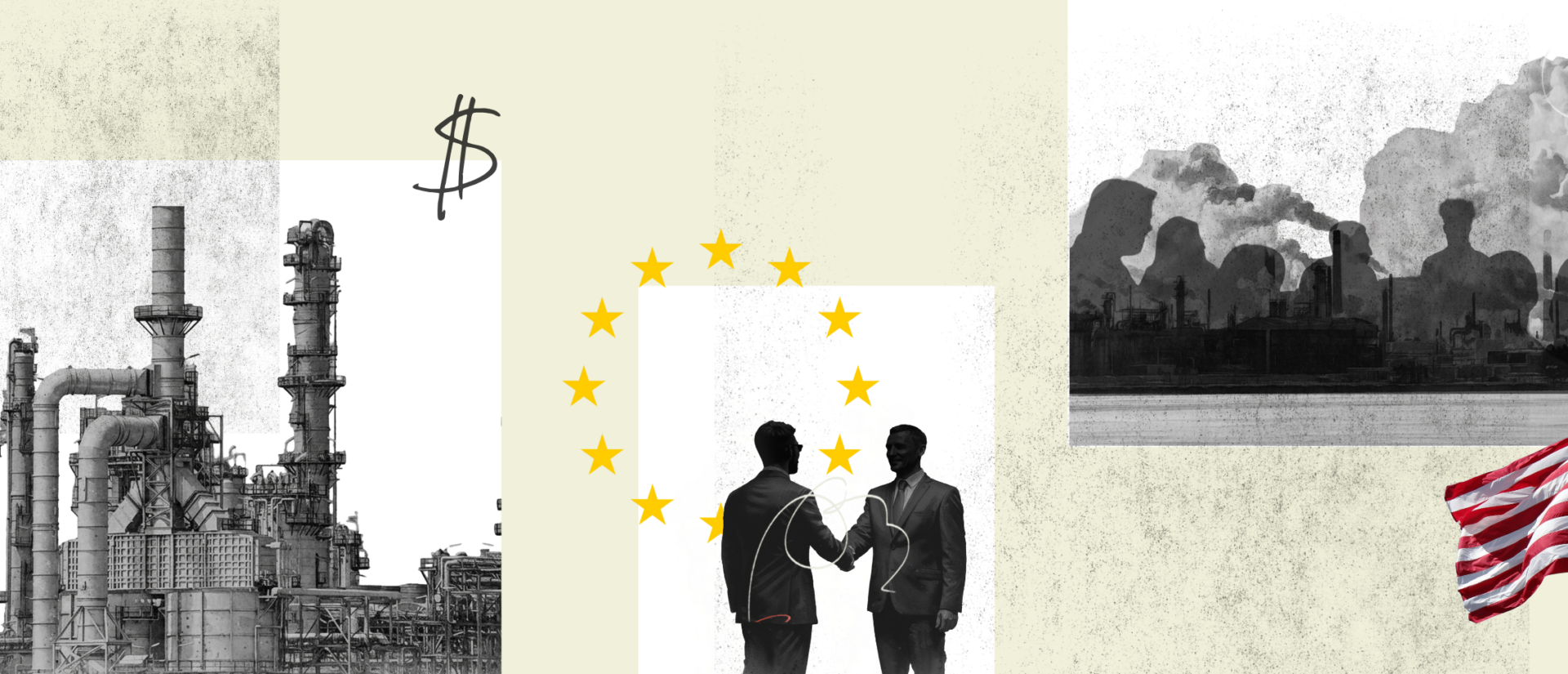
Leaked documents reveal how a secretive alliance of eleven large multinational enterprises has worked to tear down the EU’s flagship human rights and climate law, the Corporate Sustainability Due Diligence Directive (CSDDD). The mostly US-based coalition, which calls itself the Competitiveness Roundtable, has targeted all EU institutions, governments in Europe’s capitals, as well as the Trump administration and other non-EU governments to serve its own interests. With European lawmakers soon moving ahead to completely dilute the CSDDD at the expense of human rights and the climate, this research exposes the fragility of Europe’s democracy.
Key findings
- Leaked documents reveal how a secretive alliance of eleven companies, including Chevron, ExxonMobil, and Koch, Inc., has worked under the guise of a “Competitiveness Roundtable” to get the Corporate Sustainability Due Diligence Directive (CSDDD) either scrapped or massively diluted.
- The companies, most of which are headquartered in the US and operate in the fossil fuel sector, aimed to “divide and conquer in the Council”, sideline “stubborn” European Commission departments, and push the European People’s Party (EPP) in the European Parliament “to side with the right-wing parties as much as possible”.
- Chevron and ExxonMobil were in charge of mobilising pressure against the CSDDD from non-EU countries. The Roundtable companies endeavoured to get the CSDDD high on the agenda of the US-EU trade negotiations and also worked on mobilising other countries against the CSDDD, in order to disguise the US influence.
- Roundtable companies paid the TEHA Group – a think tank – to write a research report and organise an event on EU competitiveness, which echoed the Roundtable’s position and cast doubt on the European Commission’s assessment of the economic impact of the CSDDD.
While Europeans were told that their governments were negotiating a landmark law to hold corporations accountable for human rights abuses and climate damage, a secretive alliance of US fossil fuel giants was working behind the scenes to destroy it. Collaborating under the innocent-sounding name ‘Competitiveness Roundtable’, eleven multinational enterprises have worked closely to eviscerate several EU sustainability laws, including the Corporate Sustainability Due Diligence Directive (CSDDD) and the Corporate Sustainability Reporting Directive (CSRD). This Competitiveness Roundtable may be unknown, but its members are a who’s-who of polluting, mainly US, multinationals, including Chevron, ExxonMobil, and Dow. The group seems to have run rings around all branches of the EU and the Trump administration to get what they want: scrapping, or at least hugely diluting, the CSDDD.
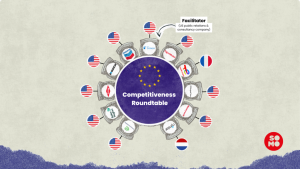
Leaked documents obtained by SOMO reveal how, under the pretext of the now-near-magical concept of ‘competitiveness’, these companies plotted to hijack democratically adopted EU laws and strip them of all meaningful provisions, including those on climate transition plans, civil liability, and the scope of supply chains. EU officials appear not to have known who they were up against. But the documents obtained by SOMO show a high level of organisation and strategising with a clear facilitator: Teneo, a US public relations and consultancy company.
The documents indicate that many of the companies involved wanted to stay hidden from view. After all, if it were widely known that a secretive group of mostly American fossil fuel companies like Chevron, ExxonMobil, and Koch, Inc. was working as a coordinated organisation to dilute an EU climate and human rights law, that might raise questions and serious concern among the public and the policymakers they were targeting. Many of the companies in the Roundtable have never publicly spoken out against the CSDDD.
Big Oil’s ‘Competitiveness Roundtable’
The Competitiveness Roundtable is dominated by fossil fuel companies, including three Big Oil companies (ExxonMobil, Chevron, TotalEnergies) and three other companies with activities in the oil and gas sector (Koch, Inc., Honeywell, and Baker Hughes). Other members are Nyrstar (minerals and metals, a subsidiary of Trafigura Group); Dow, Inc. (chemicals); Enterprise Mobility (car rentals); and JPMorgan Chase (finance).
Teneo, the Roundtable’s coordinator, has a track record(opens in new window) of working with fossil fuel companies, including Chevron, Shell, and Trafigura, and was hired by the government of Azerbaijan to handle public relations(opens in new window) when it hosted the COP29 climate conference.
In February 2025, the European Commission published the Omnibus I proposal(opens in new window), which aims to “simplify” several EU sustainability laws, including the CSDDD. The documents obtained by SOMO reveal that the Roundtable companies, which have been meeting weekly since at least March 2025, worked on deep interventions within each of the three EU institutions to get the Omnibus I package to align exactly with their views. The EU institutions are expected to reach a final agreement on Omnibus I by the end of 2025.
The documents reveal that the Roundtable companies’ activities in the Parliament are far more significant than what is visible in the EU Transparency Register(opens in new window). Eight of the Roundtable’s lobbying meetings during the Strasbourg plenary sessions of May and June 2025, listed in the Transparency Register, show Teneo as the only attendee, thereby failing to disclose the names of other Roundtable companies that participated in these meetings. Another three meetings the Roundtable held were not found in the EU Transparency Register(opens in new window) at all.
“Divide and conquer” the Council
In the European Council, the Roundtable plotted to “divide and conquer” EU governments to get the climate article in the CSDDD deleted. In June 2025, during the final weeks of negotiations in the Council on the Omnibus I proposal, the Roundtable discussed lobbying EU government leaders to “intervene politically” to ensure its priorities were included in the Council’s negotiation mandate. Subsequently, German Chancellor Merz and French President Macron reportedly(opens in new window) personally intervened(opens in new window) in the Council’s political process, leading to a dramatic dilution(opens in new window) of the texts(opens in new window) negotiated in the months before the intervention. Several of the changes made to the texts strongly align with the Roundtable’s demands, including delaying and substantially weakening the climate obligations, scrapping EU civil liability provisions, and limiting the responsibility of companies to take responsibility for their supply chains (the ‘Tier 1’ restriction).

Competitiveness Roundtable meeting document, 11 July 2025.
Additionally, the documents reveal that the Roundtable is still aiming to drum up a “blocking minority” to overturn the Council’s negotiation mandate during the trilogue negotiations, which started in November 2025. By “tak[ing] advantage of the ‘weak’ Council negotiating mandate” and disagreements between EU Member States on “contentious articles”, the Competitiveness Roundtable companies hope to force the Danish Council presidency to give up on including any form of climate obligations in the CSDDD – despite EU Member States’ agreement on this in the June 2025 Council mandate(opens in new window) .
To implement the divide-and-conquer strategy, the Roundtable assigned specific companies to “establish rapporteurships” with different EU governments. TotalEnergies would target the French, Belgian, and Danish governments, and ExxonMobil would target Germany, Hungary, the Czech Republic, and Romania.
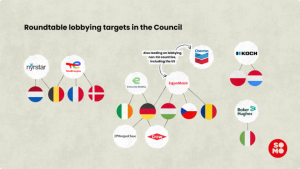
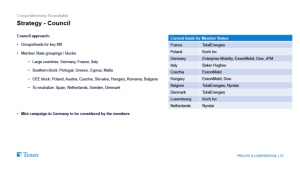
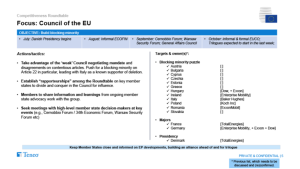
Circumventing “stubborn” European Commission departments
The Roundtable also discussed working on “circumvent[ing]” two “stubborn” European Commission departments involved in the Omnibus political process, DG JUST and DG FISMA, which, in their view, were “unlikely to be willing to see our side of the story”. According to the documents, DG JUST opposed deleting the climate article and restricting the Directive’s scope to only very large enterprises. The Roundtable aimed to diminish the role of these departments by pressuring President Von der Leyen and Commissioners McGrath (DG JUST) and Albuquerque (DG FISMA) by “organising letters from Irish and German business groups” and using an event held by the European Roundtable for Industry to “target” Von der Leyen and McGrath.
Read full report: Somo.nl
Source: Somo
Related posts:

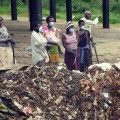 Victims of human rights violations in Uganda still waiting for redress
Victims of human rights violations in Uganda still waiting for redress
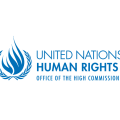 UN Human Rights Chief urges EU leaders to approve key business and human rights legislation
UN Human Rights Chief urges EU leaders to approve key business and human rights legislation
 Business, UN, Govt & Civil Society urge EU to protect sustainability due diligence framework
Business, UN, Govt & Civil Society urge EU to protect sustainability due diligence framework
 Development financiers fuel human rights abuses – New Report
Development financiers fuel human rights abuses – New Report

UPDF General on the spot over fresh evictions in Hoima

Small-scale fishers and coastal communities are pushing to testify before a human rights commission investigating the causes of food inequality in South Africa.

The Kenyan government insists on maintaining provisions of the Seed Act that the court nullified: farmers and legal experts question the motive.

FEATURE: What Lagos Can Learn From Kenya, Morocco, Uganda’s Forced Evictions

Women environmental rights defenders in Africa are at the most significant risk of threats and attacks – ALLIED New report

Uganda moves toward a Bamboo Policy to boost environmental conservation and green growth.

Evicted from their land to host Refugees: A case of Uganda’s Kyangwali refugee settlement expansion, which left host communities landless.

200 farmers demonstrate at parliament, worried about new seed monopoly

Innovative Finance from Canada projects positive impact on local communities.
Over 5000 Indigenous Communities evicted in Kiryandongo District
Petition To Land Inquiry Commission Over Human Rights In Kiryandongo District
Invisible victims of Uganda Land Grabs
Resource Center
- Land And Environment Rights In Uganda Experiences From Karamoja And Mid Western Sub Regions
- REPARATORY AND CLIMATE JUSTICE MUST BE AT THE CORE OF COP30, SAY GLOBAL LEADERS AND MOVEMENTS
- LAND GRABS AT GUNPOINT REPORT IN KIRYANDONGO DISTRICT
- THOSE OIL LIARS! THEY DESTROYED MY BUSINESS!
- RESEARCH BRIEF -TOURISM POTENTIAL OF GREATER MASAKA -MARCH 2025
- The Mouila Declaration of the Informal Alliance against the Expansion of Industrial Monocultures
- FORCED LAND EVICTIONS IN UGANDA TRENDS RIGHTS OF DEFENDERS IMPACT AND CALL FOR ACTION
- 12 KEY DEMANDS FROM CSOS TO WORLD LEADERS AT THE OPENING OF COP16 IN SAUDI ARABIA
Legal Framework
READ BY CATEGORY
Newsletter
Trending
-

 NGO WORK2 weeks ago
NGO WORK2 weeks agoUS-DRC Strategic Partnership Agreement Faces Constitutional Challenge in Court
-

 MEDIA FOR CHANGE NETWORK2 weeks ago
MEDIA FOR CHANGE NETWORK2 weeks agoIndigenous communities’ complaint against World Bank-linked Nepal Cable Car Project declared eligible for investigation.
-

 MEDIA FOR CHANGE NETWORK2 weeks ago
MEDIA FOR CHANGE NETWORK2 weeks agoDecades of land loss and chronic poverty: Salala Rubber Plantation prioritizes profit over the well-being of local Liberian communities.
-

 MEDIA FOR CHANGE NETWORK2 weeks ago
MEDIA FOR CHANGE NETWORK2 weeks agoThe Witness Radio and Seed Savers Network Joint Radio program boosts Farmers’ knowledge of seed and food sovereignty.
-

 MEDIA FOR CHANGE NETWORK1 week ago
MEDIA FOR CHANGE NETWORK1 week agoFEATURE: What Lagos Can Learn From Kenya, Morocco, Uganda’s Forced Evictions
-

 MEDIA FOR CHANGE NETWORK1 week ago
MEDIA FOR CHANGE NETWORK1 week ago13 years after the refugee host community was forcefully evicted to expand a refugee settlement, thousands remain unsettled.
-

 MEDIA FOR CHANGE NETWORK2 days ago
MEDIA FOR CHANGE NETWORK2 days agoThe Kenyan government insists on maintaining provisions of the Seed Act that the court nullified: farmers and legal experts question the motive.
-

 MEDIA FOR CHANGE NETWORK1 day ago
MEDIA FOR CHANGE NETWORK1 day agoSmall-scale fishers and coastal communities are pushing to testify before a human rights commission investigating the causes of food inequality in South Africa.

